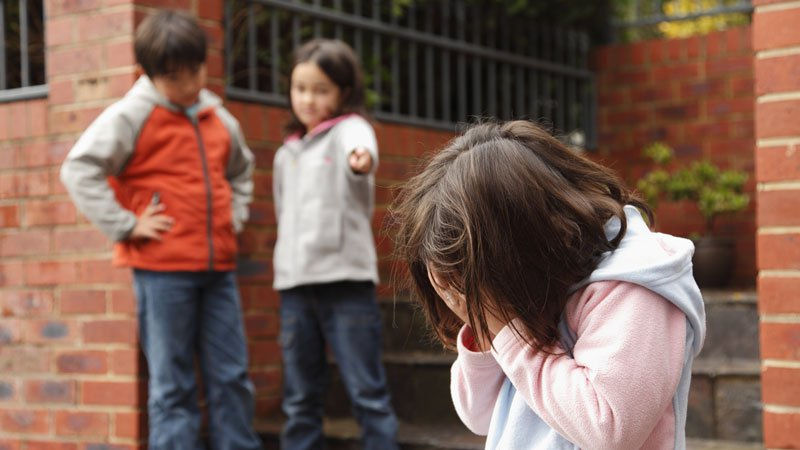Children and adolescents may begin to refuse to attend school, afraid to go to school and home from school.
 They ask to be taken to school, accompanied by their parents, they often complain that they are sick and unable to go to school, they start truanting lessons, their school success and achievements may deteriorate, they come home with ruined, damaged clothes, books, school supplies, they come home hungry (because the bully takes their lunch, money for lunch ...), they become reserved, withdrawn, beg for money or start stealing it ...
They ask to be taken to school, accompanied by their parents, they often complain that they are sick and unable to go to school, they start truanting lessons, their school success and achievements may deteriorate, they come home with ruined, damaged clothes, books, school supplies, they come home hungry (because the bully takes their lunch, money for lunch ...), they become reserved, withdrawn, beg for money or start stealing it ...
In addition, they may begin to stutter, lack self-confidence, become distracted, frightened, have eating disorders, have sleep disorders, try to commit suicide, run out of things, ask for money or start stealing money (to give it to a bully), constantly "losing" pocket money, they don't want to talk about what's wrong, they become aggressive towards their peers, siblings, towards themselves ...
All of these are signs for adults to suspect that a child may be experiencing peer violence. However, it is not always necessary that the child is in fact a victim of violence if you notice any of these signs in your child. Sometimes any of these signs also appears for some other reason or in some other situation.
The following are more detailed signs that domestic and foreign organizations recognize in victims of peer violence or that victims themselves report them:
- bruises, abrasions, cuts, other injuries… that the child does not know how to explain or you have a feeling that he does not want to tell how he actually got them (unexplained or suspicious "accidents" frequently happen to him)
- unexplained loss of toys, books, electronic devices, or these are damaged (more than usual, more often something is lost)
- the child or adolescent does not want to go to school, avoids hobbies
- they do not want to go to school by bus, change their usual route, so they are late or arrive at school very early
- they suddenly become more "dependent" on you, they don't want to be alone, they dosn't want to go somewhere alone, they lose their former independence
 they can become more withdrawn into themselves, and can also say that they feel lonely
they can become more withdrawn into themselves, and can also say that they feel lonely- changes in their personality, character, behavior ... are noticeable, they may be more distrustful and suspicious of new things or people, uncertainty is very common
- becomes sadder, moody, anxious, angry, for no apparent reasons, and these moods last longer time
- common are headaches, abdominal pain, vomiting before going to school, trying to stay at home due to illness
- they have trouble with sleeping and nightmares, crying before falling asleep, bedwetting may also occur
- eating habits change (e.g. loss of appetite or coming home from school terribly hungry every time because they take away his/her snack or money for it ...)
- they may also become violent towards their younger siblings
- they wait until home to go to the toilet (never at school)
- they haves fewer friends at once, no longer hang out with the usual group, may not be accepted by peers (no longer invited to birthday parties)
- their grades and school performance are deteriorating, they are truanting school
- feelings of shame are common, they blame themselves for many things, they feel that they are not good enough,
- they speak of feelings of helplessness, suffer from low self-esteem
- self-harm, suicide attempts, escape may also occur
- they ask more often their parents for money (can also steal it to give it to bullies to leave them alone)
- may also start abusing alcohol
- begins to stutter, tics and various other disorders appear

